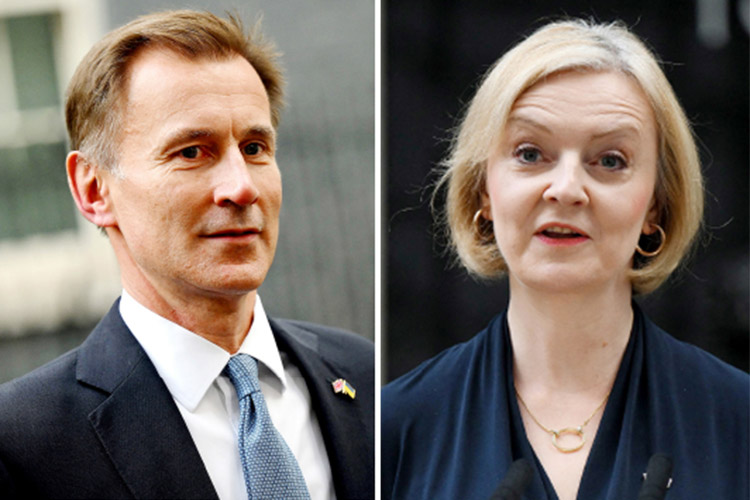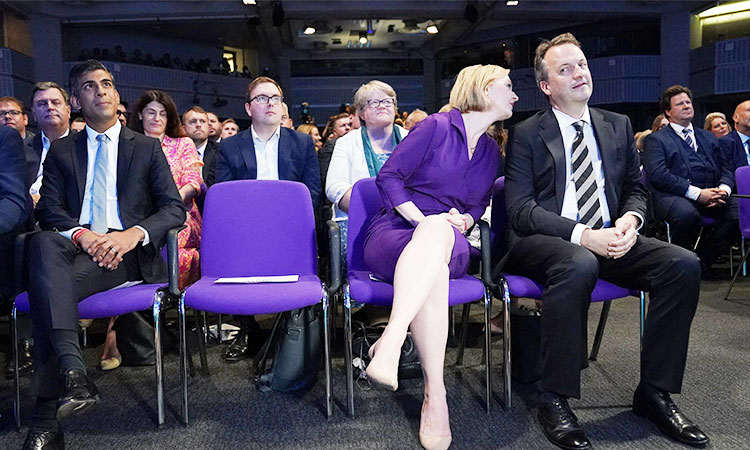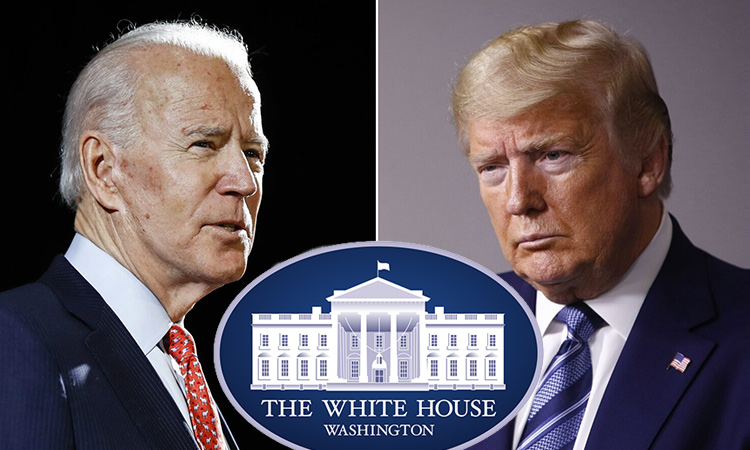Hunt ignore these three golden rules at your peril


Liz Truss and Esther McVey.
Tory MPs, with rare exceptions, are a fussy, factional bunch of fantasists who think that if only the financial markets and the voters listened more carefully, they would understand their essential wisdom and effectiveness of their policies — and embrace them as truth.
When someone such as Jeremy Hunt (not, to be honest, really “one of their own”) trundles along and gives them the real truth about the national finances, they grumble and hiss and whinge and generally turn their noses up. And then they vote against some of the autumn statement measures they find particularly offensive, especially tax hikes. Figures such as Jacob Rees-Mogg and Esther McVey have already signalled they may well rebel on the tax measures.
They will tell the prime minister and the chancellor to go away and think again, which translates as: “cut some portion of public services their voters don’t care much about”. They will do this time and again, because they were virtually trained to do it during the long messy years of getting Brexit through parliament. But it won’t mean the fall of the government. They’re not that stupid.
If the opposition — or even the prime minister — calls a formal vote of confidence in His Majesty’s government, then of course they’ll back their own administration. The nominal majority of 70+ in the Commons will materialise again. But the next day, they’ll be back in the lobbies, obstructing the tax hikes. It is a form of cognitive dissonance sometimes seen in Westminster, and it is hard to cure.
We know whence it came, the current pathology of the Conservative Party, exacerbated by a long period in office and a certain exhaustion of ideas and talent.
One of the many baleful legacies of the premiership of Boris Johnson was what we now know as “cakeism”. It derived from a quip he once made: that his policy on cake was very much in favour of having it and eating it. It was the central delusion of Brexit, of course — that Britain could continue to enjoy the nice things the EU brought, but decline the more onerous obligations. This notion spread to fiscal policy like a toxic bacillus, promising simultaneous tax cuts (or, at least, no increases); lavish spending on public services and “levelling up” investment (more often as not political bribes); while also supposedly keeping borrowing under control and interest rates down.
It reached fever pitch in the mad “mini-Budget” presented by Liz Truss and Kwasi Kwarteng only a matter of weeks ago. Its rapid terminal collapse has ununfortunately done little to inoculate the Tory party against chronic cakeism.
And so it goes on, a kind of zombie party alternately haunted and directed by the spirits of leaders past — Margaret Thatcher’s monetarism and David Cameron’s austerity, as well as Boris Johnson and Liz Truss.
Now, under Sunak and Hunt, the economic policy has a feel of the harshness of the first Thatcher administration, circa 1980, with its attempt to balance the budget and squeeze inflation via interest rates.







